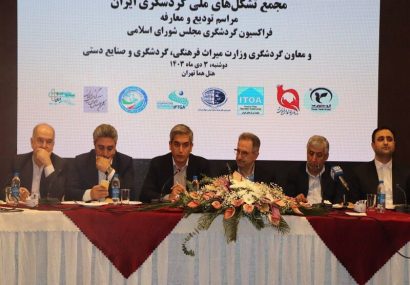Foreign Airlines Overcharging Iranians and Draining Millions of Dollars
TEHRAN (Iran News) Rafiei highlighted that foreign airlines operating in Iran have removed ticket prices from their systems, leaving travelers vulnerable. With only four active domestic airlines, foreign carriers have inflated their prices up to 3.5 times the actual rate. For instance, a business-class ticket from Tehran to Paris on Turkish Airlines costs 140 million tomans ($2,800), while purchasing the same ticket abroad costs only 40 million tomans ($800). These airlines operate multiple daily flights, collectively moving thousands of passengers and significantly depleting Iran’s foreign currency reserves.
Additionally, Rafiei pointed out that a Tehran-Paris flight on Qatar Airways costs an astonishing 520 million tomans ($10,400). He also raised concerns about the personal data of Iranian travelers being stored on foreign servers, further compromising national security.
Rafiei lamented the fragile state of Iran’s tourism industry, which he described as facing unprecedented challenges. He attributed these problems to global events and fluctuations in the value of the Iranian rial, which directly impact the sector. Despite minimal government support, the private sector has managed to sustain the industry independently.
“The tourism sector benefits ordinary citizens directly,” Rafiei noted. “It generates revenue without relying on state resources or subsidies, making it a vital economic asset.”
He urged the government to facilitate, rather than hinder, the industry’s progress.
Rafiei criticized the imposition of a €10 departure tax on Iranian travelers at airports, in addition to existing exit fees. He argued that passengers should not bear the tax burden for flights operating outside Iran’s airspace. He also underscored the high cost of domestic tourism, which has become uncompetitive due to the devaluation of the Iranian rial and rising expenses.
Disputing official statistics, Rafiei said claims of six million foreign tourists visiting Iran annually are exaggerated. “We don’t even have 600,000 genuine tourists,” he stated, asserting that most visitors are not actual tourists but individuals transiting through the country.
Mohsen Fathi, head of the Parliamentary Tourism Faction, emphasized the importance of collaboration between the government, parliament, and private sector to revitalize the industry. He praised recent legislative efforts, such as integrating tourism into Iran’s five-year development plan, as steps toward progress.
The private sector has shown a commitment to strengthening ties with government agencies, a relationship that Rafiei hopes will continue under new leadership in the Tourism Ministry.
As Iran grapples with high travel costs, data security concerns, and dwindling foreign currency reserves, stakeholders in the tourism sector are urging swift and decisive action to protect the industry and its contribution to the national economy.
- source : IRAN NEWS ECONOMIC DESK






























